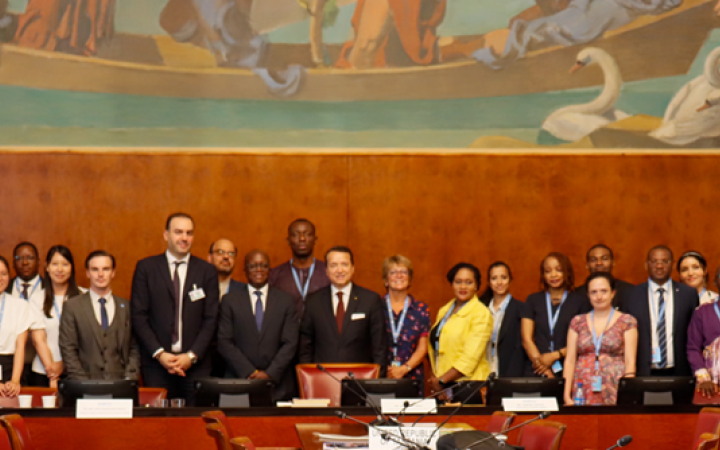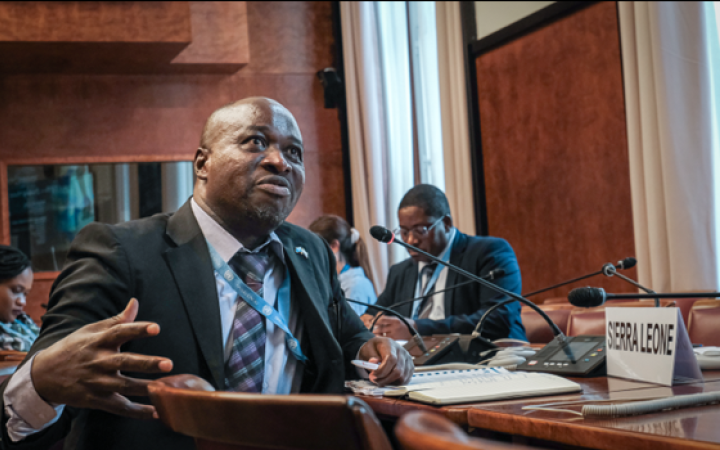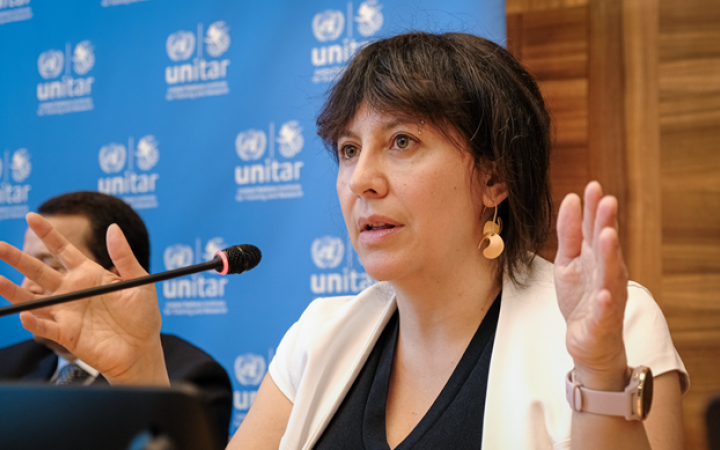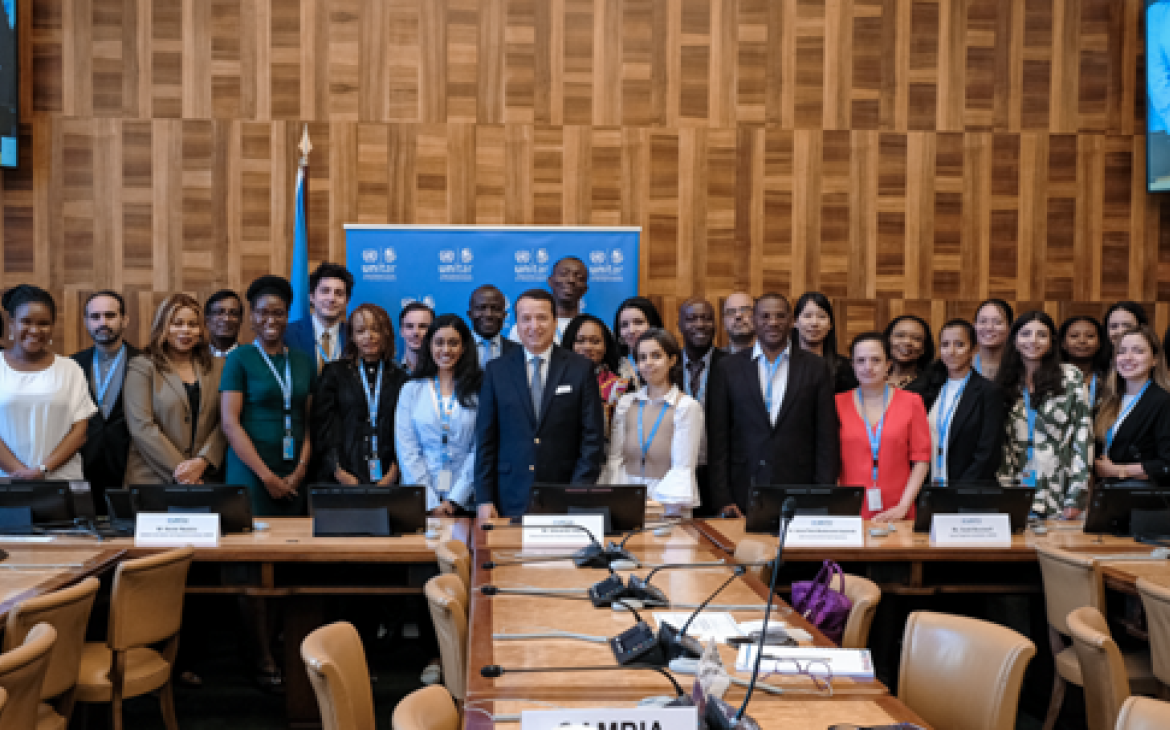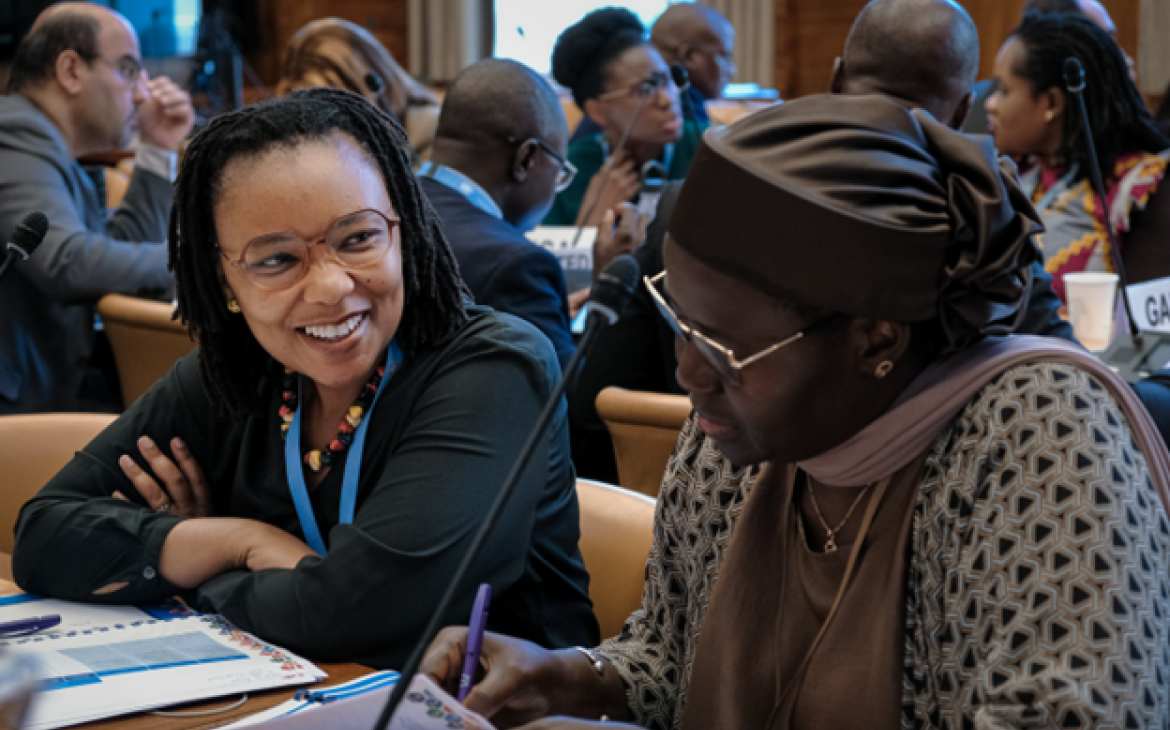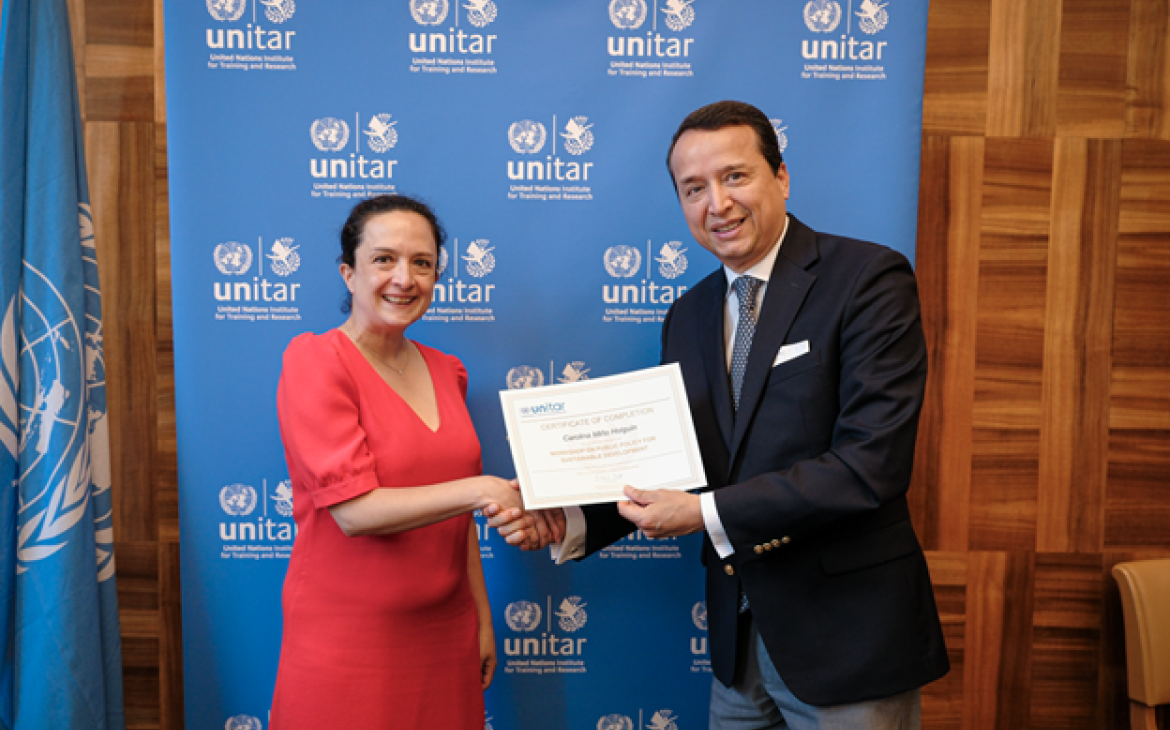14 July 2023, Geneva, Switzerland - UNITAR has successfully concluded a four-day training on Public Policy for Sustainable Development skills for Geneva's diplomatic community at the Palais des Nations, bringing together 24 participants from over 20 member-states of the Non-Aligned Movement (NAM). The workshop consisted of eight interactive sessions, led by world-class experts, including Ambassadors and senior UN officials, all working to equip participants with the skills and knowledge necessary to impact global public policies.
The workshop began with opening remarks by Mr Nikhil Seth, UN Assistant Secretary-General and UNITAR Executive Director, who stated,
As diplomats, you have a unique opportunity to shape global public policy. Your voice matters and your decisions have far-reaching impacts. Embrace this opportunity to champion policies that align with the Sustainable Development Goals. Let the SDGs guide your decisions in advocating for a fairer, more equitable world through international diplomacy.
Followed by Mr Seth's remarks, H.E. Amb. Arthur Sewankambo Kafeero, Deputy Permanent Representative of the Republic of Uganda to the United Nations, and next chair of the Non-Aligned Movement, also provided opening comments in addressing the relevance of the event to NAM’s mandate, which, he highlighted, addresses universally recognized issues, and are not limited to the agendas of individual countries.
The first day featured Mr Alex Mejia, Director of UNITAR’s Division for People and Social Inclusion, delivering a seminar on understanding public policy foundations for diplomats, which included examining the policy cycle from agenda setting to evaluations for addressing global challenges. Ms. Isabelle Durant the former Deputy Secretary-General of UNCTAD and former Deputy Prime Minister of Belgium, later delivered a seminar on framing socio-economic development within the UN framework, resource mobilization for global finance architecture, and diplomatic strategies in resolution processes. Following these sessions, participants engaged in a dynamic inter-stakeholder simulation exercise to promote a dialogue on reducing water consumption and responsible water use aligned with SDG 6.
On the following day, Mr Mejia shared key insights on effective communication strategies and problem-solving skills when engaging stakeholders in the policy process. Mr Malik Faraoun, Investment Manager at the OPEC Fund for International Development, followed with a seminar on the private sector's role in achieving the SDGs through Public-Private Partnerships (PPPs). Lastly, Dr Adriana Blanco Marquizo, Head of the Secretariat of the WHO Framework Convention on Tobacco Control (FCTC) examined a case study to identify the challenges faced by WHO when implementing public policy as a result of, and following the COVID-19 pandemic.
The third day began with Mr Mejia's seminar on policy formulation and explored different political dynamics in policymakers choosing appropriate responses to address global threats. The second session was led by Mr Juan Felipe Hunt Ortiz, Deputy Director of Partnerships at ILO, who discussed policy formulation to achieve SDG 8 (Decent Work and Economic Growth) and covered pertinent issues such as combatting child labour and human trafficking in developing countries. Last, Prof. Mike Saks, Emeritus Professor at the University of Suffolk, addressed effective leadership strategies in the public sector, focusing on collaboration, fund mobilization, management, and conflict resolution. The day ended with an engaging discussion between the panellists and the participants.
On the last day, Mr Mejia discussed economics in public policy, which covered the difficulties of the aspirations of economists to achieve a balance of equity and efficiency, government interventions to correct market failures and relevant economic indicators that policymakers can use to overcome global challenges. Additionally, Dr Juana Paola Bustamante Izquierdo, Labour Economist at the World Health Organization, explored monitoring criteria and evaluation methods for public policies, which emphasized the importance of meeting SDG targets and indicators. The session was followed by a practical exercise on developing logic models to guide participants in creating effective evaluations, in which participants, in groups, developed their policy strategies.
In closing the workshop, H.E. Ambassador Luis Gallegos, Chair of the UNITAR Board of Trustees, provided closing remarks when awarding participants certificates for the workshop and stated:
As diplomats based in Geneva, you play a critical role in promoting global cooperation and advancing the SDGs related to peace, security, and sustainability practices. To achieve these goals, effective public policy is essential.
In remarking on the workshop, one participant stated,
The production of the content, the workbook, and presentations were very well executed. Just enough to be easily understood and digested. The length of the sessions (daily) was also perfect. Excellent presentation by the team.
Another participant, also commented,
I would want to do the course at a much higher level. NAM should continue this partnership with UNITAR for its member states in Geneva/capitals.
Participants’ enthusiastic involvement in the group discussions, as well as their, pertinent and thought-provoking questions to the panelists, demonstrate that the workshop was a success. UNITAR looks forward to furthering the professional capacities of diplomats and public officials of the NAM in its next workshop on Public Financing methods in the autumn.


